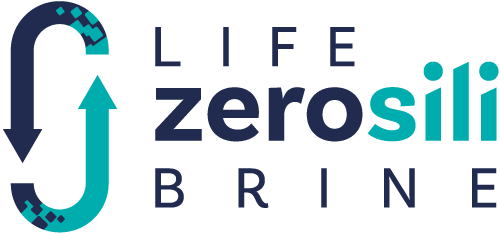Overview
Valorisation of precipitated silica wastewater through circular economy strategy for sodium sulphate and water recovery
Precipitated Silica production process generates as a by-product a high conductivity salt stream that is poured into natural channels after passing through treatment plants. The main salt generated in the process is sodium sulphate that must be removed, along with other components as colloidal silica, by washing, generating a big water consumption.
- European production of precipitated silica in 2018
720,000 Tons
- Worldwide production of precipitated silica in 2018
2,500,000 Tons
- Estimated sodium sulphate spilled to European natural channels
500,000 Tons
In this context, IQE and EURECAT have developed a reverse osmosis-based process in a small scale (2 m3/h) that solves membrane blocking problems that made unfeasible this technology up to now. This development has been carried out within the framework of the H2020 research and innovation ZeroBrine project (G.A. no 73090) by IQE and EURECAT
LIFE ZERO SILI BRINE
The project entitled Valorisation of precipitated silica wastewater through circular economy strategy for sodium sulphate and water recovery (LIFE ZEROSILIBRINE) address “Resource Efficiency, green and Circular Economy” topic as the main environmental goals is to demostrate a technology that can allow a circular economy model for precipitated silica wastes.
Pilot project
Circular economy
This project is a clear example of circular economy project, ensuring the use of secondary resources (precipitated silica waste) as an alternative to natural resources and materials (well water for silica precipitated silica manufacturing and primary sodium sulphate extration).
Close to market
LIFE ZEROSILIBRINE project is a close to market project as it will put in market an environmental solution for precipitated silica wastes and will place in market a secondary anhydrous sodium sulphate that is already generating big interest in market. The implementation of this project constitutes a new business model for circular economy.
Partnerships structure
This project will be leaded and coordinated by IQE and the partnerships structure will be completed with EURECAT. IQE, as precipitated silica manufacturer, will lead industrial activities piloting the pre-industrial plant and validating technical and economic feasibility and related future business, while EURECAT will contribute with their expertise in membrane technologies and wastewater treatment, environmental monitoring and the technical transferability fo the technology.
The LIFE ZEROSILIBRINE project has received funding from the European Union under grant agreement nº LIFE20 ENV/ES/000522. The project runs from 01/09/2021 until 31/12/2024 and has a budget of 3,200,605 €.



